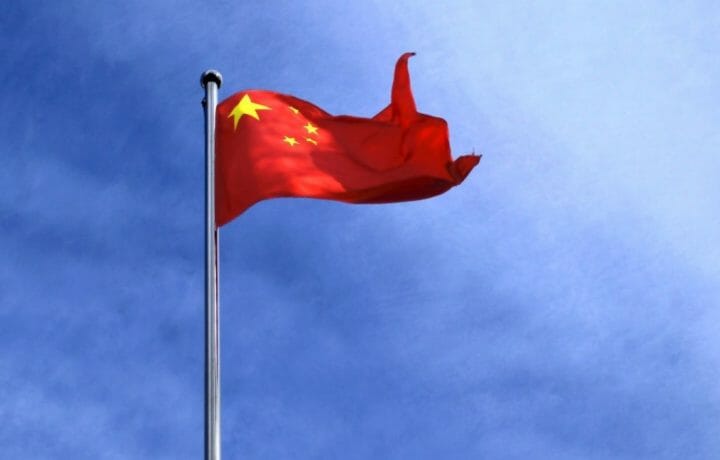Update: U.S. Senior District Court Judge Rya W. Zobel opted not to send a message of deterrence and sentenced Dr. Charles Lieber, 64, to time served (two days) in prison; two years of supervised release with six months of home confinement; a fine of $50,000; and $33,600 in restitution to the IRS. The government had recommended an equally lenient sentence of 90 days in prison and a $150,000 fine.
Update: Charles Lieber, the former Chair of Harvard University’s Chemistry and Chemical Biology Department was convicted on December 21, 2021. A jury found Lieber guilty on two counts of having lied about his participation in China’s Thousand Talent program and two counts of failure to reveal f related to his failure to declare his Chinese bank accounts. The Department of Justice in their announcement of the guilty verdict noted, “Under the terms of Lieber’s three-year Thousand Talents contract, Wuhan University of Technology (WUT) paid Lieber a salary of up to $50,000 per month, living expenses of up to $150,000 and awarded him more than $1.5 million to establish a research lab at WUT.” Lieber will be sentenced at a later date.
China’s Thousand Talents Program is harvesting U.S. technology through the false promise of recognition and open sharing. The Chinese state run effort is a cover to entice members of both U.S. academia and industry to share information which they would otherwise keep confidential with the soul purpose of advancing China’s interests. Here are a few examples which readers may use in their counterintelligence briefings of their cleared and uncleared population.
Harvard
A Harvard University professor and two Chinese nationals were recently arrested on multiple counts ranging from smuggling to visa fraud. In this instance, under the rubric of China’s Thousand Talents Program, Dr. Charles Lieber was identified by the Chinese government as a person of extreme interest given his knowledge and expertise in the field of nanoscience. Such was Lieber’s recognition as a key strategic scientist, his research group at Harvard had received a $15 million grant from the Department of Defense and National Institute of Health. The grant required Lieber to reveal any support his lab or research group was receiving from foreign entities or persons.
When interviewed in 2018 and 2019 for the DOD/NIH grant, Lieber chose not to reveal that since 2011 he had been sucked into the Chinese plan. He failed to disclose he was designated as a “strategic scientist” at WuHan University of Technology (WUT). That designation made him a “contracted” participant from 2012 through 2017. One three year agreement saw China paying Lieber $50,000 per month, with one million (~$158,000) in Chinese Yuan provided for living expenses, and $1.5 million to establish a research lab at the WUT.
Lieber’s agreement with the Chinese required him to spend at least nine months of the year at WUT and “declaring international cooperation projects, cultivating young teachers and Ph.D. students, organizing international conference[s], applying for patents and publishing articles in the name of” WUT. In other words, Lieber had to transfer his knowledge and organizational know-how to WUT.
Harvard would soon find out that their professor had opted to butter both sides of his piece of bread and was augmenting his Harvard remuneration with a Chinese bonus contract.
Coca Cola and Eastman Chemical
Xiaorong (Shannon) You, a polymer scientist was indicted for conspiracy to steal trade secrets related to formulations for bisphenol-A-free (BPA-free) coating from Coca Cola and Eastman Chemical, share those secrets with a Chinese co-conspirator as part of the Chinese Thousand Talents Program. In this instance, You knew full well that the information was going to be used to enable a Chinese leap-frog of the confidential efforts of Coca Cola and Eastman Chemical.
Assistant Attorney General John Demers said at the indictment announcement how “the conduct alleged in today’s indictment exemplifies the rob, replicate and replace approach to technological development. Xiaorong You is accused of an egregious, premeditated theft and transfer of trade secrets worth more than $100 million for the purpose of setting up a Chinese company that would compete with the American companies from which the trade secrets were stolen. Unfortunately, China continues to use its national programs, like the ‘Thousand Talents,’ to solicit and reward the theft of our nation’s trade secrets and intellectual property.”
General Electric
In 2018 we learned of the theft of GE’s intellectual property associated with advances in gas turbine technologies, by their employee, Xiaoqing Zheng. What Zheng, like others, neglected to let his employer know is that he was also being funded by China’s Thousand Talent Program and had been engaged with the program since 2012. While GE managed to stop the outflow of some of their information because Zheng used a USB drive to copy the information from the GE network to the device, which caused an anomaly alert within the insider threat program monitoring, they missed the fact that for years Zheng was associated with the Chinese entity.
Thousand Talents Program a Chinese success story
The Chinese consider their Thousand Talents Program a huge success. Indeed, in 2017 they heralded their success at creating 73 companies in China and enticing 11,000 overseas “high-level talent” to China.
According to the National Intelligence Council, the Chinese initiative is making possible “the legal and illicit transfer of U.S. technology, intellectual property and know-how to China.”
Do you have individuals at your entity participating in the Chinese Thousand Talents Program? These cases make it clear – across the commercial sector and defense industry, personnel are being actively and aggressively recruited. Make sure personnel know what to watch for, and your insider threat program has the robust procedures to catch those who would attempt to walk off with company resources.




